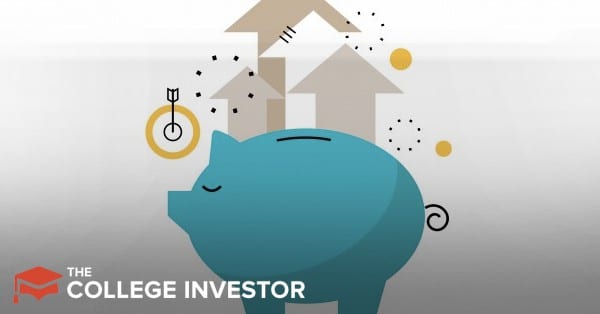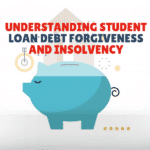
Source: The College Investor
The student loan debt tax bomb can happen when you have to pay taxes on the student loan forgiveness you received. However, most people will avoid the tax bomb due to a tax process called insolvency.
While some student loan forgiveness programs, like Public Service Loan Forgiveness (PSLF) are tax-free, others - like when you get your student loans discharged under Income-Based Repayment, are potentially taxable.
However, there's one big exception - insolvency. Insolvency is a tax situation when your liabilities (such as forgiven student loan debt) exceed your assets (like the money in your savings account). If you are technically insolvent, you may avoid some or all of the taxes associated with your loan forgiveness.
That is a big win for borrowers getting their loans forgiven under IBR, PAYE, SAVE, or ICR. Let's break down what that looks like.
Note: With the President Biden signing the American Recovery Act in 2021, all student loan forgiveness (Federal and private from any program) is considered tax-free on the Federal level through December 2025. However, some states my not conform with Federal law, in which case insolvency may still be an important tool for loan forgiveness.
What Is Student Loan Forgiveness?
There are four main areas of student loan forgiveness, and each has its own taxability. We've talked about student loan forgiveness and taxes before, but here's a quick summary.
1. Federal Student Loan Forgiveness Programs - These include programs like PSLF, which are tax free student loan forgiveness programs.
2. Student Loan Repayment Assistance Programs - These are state-based or company-based student loan repayment programs, such as when your employer gives you $5,000 per year towards your student loan debt. These programs don't qualify for insolvency, but the amount awarded is typically considered ordinary income.
3. Student Loan Cancellation - These are programs that allow for the cancellation of your student loans. Some are considered taxable income, others aren't. For example, if you have your student loans cancelled due to a closed school discharge, that is considered taxable income. However, if you get your student loans forgiveness due to total and permanent disability, that is tax free (thanks to President Trump's Student Loan Programs).
4. Student Loan Forgiveness Due To Repayment Plan - This is when your student loan balance is forgiven at the end of your repayment plan when you're on income-driven repayment (like IBR, PAYE, SAVE, ICR). This type of student loan forgiveness is considered taxable income and could potentially qualify for insolvency.
What Is Insolvency?
Insolvency is a technical tax term meaning that your liabilities (what you owe) exceeds your assets (what you have). When it comes to student loan debt, the forgiven debt is considered income - which you'll receive a 1099-C for the cancelled debt. That amount must be reported and there will be taxes due on that "ghost" income unless the borrower can show they were insolvent at the time of forgiveness.
To figure this out, you must calculate your "insolvency amount". This is the difference between your assets and liabilities. If your insolvency amount is greater than the forgiven debt, then you can exclude it and not pay taxes on it. If the insolvency amount is less than the forgiven debt, you might have partial insolvency.
It's important to note that for the purpose of insolvency, the IRS takes into consideration all assets you own. This includes the basics like checking and savings account, and investments, but also includes things like your retirement account values, your real estate, any business ownership, even the value of your possessions.
To figure out the liabilities, you include any debt owed (like credit card debt, mortgage debt, etc.), along with the amount of forgiven debt (your student loans).
Example Of Total Insolvency
Let's take a look at an example of total insolvency to highlight how this works. This situation could apply to many borrowers dealing with student loan forgiveness, so it's a good example of what can happen.
This borrower has been on IBR for 25 years, and the loans have grown to $70,000. However, he did manage to save a little in a 401k, and does have a few assets.
Assets | Liabilities |
|---|---|
Checking Account - $2,000 | Federal Student Loan - $70,000 |
Car - $8,000 | Private Student Loan - $65,000 |
Personal Stuff - $5,000 | Credit Card Debt - $10,000 |
401k Value - $45,000 | |
Total Assets - $60,000 | Total Liabilities - $145,000 |
In this example, he has total assets of $60,000, and total liabilities of $145,000. That makes his insolvency number $85,000. Since his student loan debt was $70,000, and that's less than the insolvency number of $85,000 - the total amount of student loan debt "ghost" income will not be considered taxable income.
Example Of Partial Insolvency
Let's look at an example of partial insolvency, which is more common for borrowers. In this scenario, there's more student loan debt, and slightly more assets.
Assets | Liabilities |
|---|---|
Checking Account - $2,000 | Student Loan Debt - $170,000 |
Car - $8,000 | Credit Card Debt - $10,000 |
Personal Stuff - $5,000 | |
401k Value - $65,000 | |
Total Assets - $80,000 | Total Liabilities - $180,000 |
In this case, the insolvency number is $100,000. Because the amount of student loan debt ($170,000) is larger than the insolvency number of $100,000, he still must include the remaining $70,000 as taxable income.
Why Most Borrowers Shouldn't Worry About Taxes On Their Forgiven Debt
For most borrowers who are getting student loans forgiven, you shouldn't worry about the future tax implications of it. Making payments under an Income-Driven Repayment Plan are usually the best case scenario - if you could afford full payments, you would. You're on these plans because it's better than the alternative - default.
Second, 20-25 years is a long time. There could be major changes to tax legislation before any amount of the debt is forgiven and potentially taxable.
Finally, the math still works in your favor. Only in extreme cases should larges amounts of debt be full taxable. Most borrowers will see themselves receiving total or partial insolvency, which will significantly reduce any tax burden.
And realize, you're now paying taxes on a much smaller amount of debt. For example, in the partial insolvency situation above, let's see how that would play out given current tax brackets. Let's assume this was a single guy or gal, making $45,000 per year. The taxable income of $70,000 would boost the total taxable income to $115,000. That moves him or her from the 22% tax bracket, to the 24% tax bracket.
However, it's ghost income - meaning that you have to claim it even though no income came in. And that tax liability could hurt. That bumps his total tax bill from $3,770 to $19,010 - a huge change of $15,240. That's a big amount to pay. But, look at the big bright side. You just went from owing $170,000 on your student loans to owing just $15,240.
You can easily setup a payment plan with the IRS, make some quick financial changes, and eliminate that debt rather quickly.
For smaller amounts of debt, the math works out even better.
Final Thoughts
As with anything involving taxes, the math gets tricky, every situation is different, and you should really seek the advice of a tax professional when handling insolvency. It's complex, it has a high likelihood for audit, and so you want to make sure you do everything correctly. Plus, you also might have state taxes on your student loan forgiveness too.
The big lesson here is to not fear the tax consequences of the secret student loan forgiveness programs. Yes, there are tax consequences, but they are manageable and better than any alternative out there.

Robert Farrington is America’s Millennial Money Expert® and America’s Student Loan Debt Expert™, and the founder of The College Investor, a personal finance site dedicated to helping millennials escape student loan debt to start investing and building wealth for the future. You can learn more about him on the About Page or on his personal site RobertFarrington.com.
He regularly writes about investing, student loan debt, and general personal finance topics geared toward anyone wanting to earn more, get out of debt, and start building wealth for the future.
He has been quoted in major publications, including the New York Times, Wall Street Journal, Washington Post, ABC, NBC, Today, and more. He is also a regular contributor to Forbes.
Editor: Clint Proctor Reviewed by: Claire Tak
